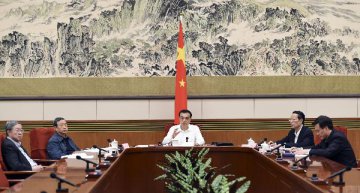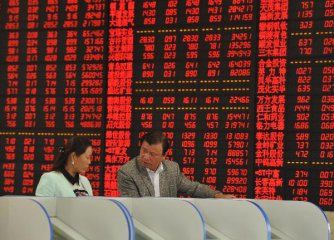
It is learnt by the journalist from experts that “13th 5-year plan” is likely to improve the interest rates controlling system of the People’s Bank of China (PBOC), the central bank, intensify the guidance for market expectation, reinforce price-based adjustment & control and transmission mechanism, further improve formation mechanism of RMB exchange rate and financial supervision, and develop inclusive finance.
Meanwhile, financial reform may focus on four industrial aspects in the “13th 5-year plan” period: inclusive finance, entrepreneurial finance, internet finance and green finance.
Interest rate and exchange rate reform likely to speed up
Yao Yudong, director of Financial Research Institute of PBOC, pointed out that “13th 5-year plan” will specify financial subjects under discussion, covering seven aspects: 1) to encourage financial innovation; 2) to develop multilayer capital market; 3) to speed up the marketization reform on interest rate and exchange rate; 4) to realize convertibility of capital account and RMB; 5) to improve macro adjustment & control and supervision for the finance; 6) to better bring policy-and-development-based finance into play; 7) to develop inclusive finance.
Interest rate and exchange rate reform is the core of financial reform. Ma Jun, chief economist of PBOC Research Institute, believed that easing upper limits of deposits interest rates is a significant milestone for its marketization, but not the whole process. Another two important tasks in the interest rate marketization process are to strengthen the financial institutions’ pricing capability of marketization and further reinforce transmission mechanism of interest rates, making more financial markets and institutions to utilize market interest rates, including SHIBOR, short-term repo rates, Treasury bonds return rates and base interest rates, as the basis for products pricing, and gradually weakening the dependence on benchmark interest rates of loans & deposits by the central bank.
Financial supervision will further improve
Financial supervision system is likely to further improve during the “13th 5-year plan” period. Currently, most attention is paid to the issues how separated supervisions can adapt the demands of mixed operations, and whether financial supervision patterns will change in the future.
Yao also believed that innovation and supervision are main issues for financial industry, which is accelerating the steps for comprehensive operations. Overall strength of financial institutions continues to improve, with emerging patterns for financial services, proposing expectation towards innovative space and also requirements for financial supervision system. The global financial industry experiences a process of comprehension-to-separation and separation-to-comprehension, which are pushed by constant deepening of financial market and promoting of divisions in financial industry.
“Separated regulation has lagged behind mixed operation in financial industry,” Sheng Songcheng, director of the PBOC's surveys and statistics department earlier wrote in an article. So far, balance of bank wealth management products has topped 2 trillion yuan, in which off-balance sheet wealth management products takes up over 1.4 trillion. Shadow banking represented by off-balance sheet bank wealth management products has become an important force in China’s financial market. Many short-term funds hibernate in various financial segments, waiting for arbitrage opportunities. It’s also one of the reasons led to sharp rise and fall in China’s A-share market not long ago. All these suggested that joint efforts could hardly be made in separated regulation climate.
Focus on four industry aspects
Ma Jun pointed out that there is still room for inclusive finance in western China, as this type of activity is still under development there. It is generally believed that the starting point of inclusive finance is to eradicate poverty, which involves providing financial products and services to middle-low income groups, namely, making credits available to those groups which have source of income and repayment ability, but cannot borrow from formal financial institutions. Financial reform in the “13th 5-year plan” will emphasize inclusive finance, with the target to serve more low income groups and small and micro businesses.
Since Chinese Premier Li Keqiang brought forward “the massive entrepreneurship and innovation by all” in Summer Davos Forum in Sept. 2014, the fever of entrepreneurship and innovation has swept across China. But many innovators and entrepreneurs find financing difficulty a barrier on their way ahead. To provide better soil for entrepreneurship and innovation, it is imperative to develop entrepreneurial finance. Ma Jun explained that entrepreneurial finance refers to fundraising for start-ups and innovation in financial system for venture capitals, aiming at tackling financing difficulties for entrepreneurs.
Ma Jun indicated that internet finance, by its advantage of lower cost, could meet the demand of small and micro businesses and financing demand in remote and poverty-stricken areas, but it usually attaches greater risks. “Risks on internet finance must be controlled, and (we) should enhance risk management and control,” he said.
Ma Jun also emphasized the urgency of developing a green financial system. It is predicted that in the future China will need approximately 2 trillion yuan per year for green investment, leading the economy to transform to sustainable development. But its fiscal allotment could only provide 15 percent of the capital requirements, which means that more than 85 percent of green investment will be carried out by private capitals. “Green finance aims at promoting green investment through financial measures, and it is extremely urgent to develop a green financial system”.
Translated by Adam Zhang and Jelly Yi





















Latest comments